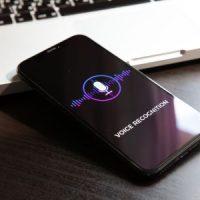Video and Audio Recording in the Workplace: Is it Legal?

Snooping, prying, and eavesdropping are not things an employee would think should be allowable in the workplace. From an employer’s standpoint, “listening in” on employees, can be a valuable “quality control” and training tool, and even a way to make sure that employees are harassing each other or discriminating against anybody.
But there is certainly a line where listening in becomes too invasive. Just how far can a California employer go, when it comes to listening in on the conversations of its employees?
The Nature of the Business
The general rule when it comes to listening in on employees’ conversations, is whether the conversations apply to the business’ services . So, for example, a company could listen in on conversations between customer service representatives, and customers calling into the business.
The business could not, however, listen in on conversations that the employee may have informally with other employees, or conversations in the company break room, those conversations having nothing to do with the functioning or purpose of the business itself.
What About Phone Calls?
Again, if it relates to the business, an employer can record employees’ company phone calls. It can also record your personal calls, but only if you make those calls on company phones or lines.
Video Surveillance
Videotaping or surveillance works much the same way as audio calls. Employers can videotape anybody that is in a “public space,” for example, at the employees’ desk or in a public conference room.
But it is illegal to record an employee anywhere he or she may have a reasonable expectation of privacy—for example, bathrooms, or sometimes, private offices. The same goes for any area that has restricted access, for example, any area that is only accessible by key or key card. And it is always illegal to record or surveil union meetings.
Note that the right to video surveil is broader than the right to audio record. So, even if it is legal to video surveil in, say, a company hallway, that does not mean that the company can record the audio.
Necessary Industries
Some industries, by necessity, need to be constantly watched over. That may include retail stores or banks, where there is likely theft. It may also include government buildings, which can be targets of crime. Courts have said that employees who work in these environments necessarily forgo some degree of privacy.
Recording Your Employer
Employees cannot record employers in private conversations without the employer’s consent. They can however record an employer, ie. Supervisor, manager, etc. in conversations which take place in public; such as those that may happen in an open workspace, cubicle, hallway, lobby, elevator or other places where the conversation could easily be heard by others.
Illegally obtained audio or video will not be admissible in any lawsuit against your employer.
Questions about whether you are being treated fairly by your employer? Contact the San Jose employment lawyers at the Costanzo Law Firm today.
Sources:
nanoglobals.com/california-workplace-audio-video-recording-policies/
reuters.com/legal/legalindustry/can-employees-record-almost-anything-work-now-what-employers-need-know-2023-07-17/
